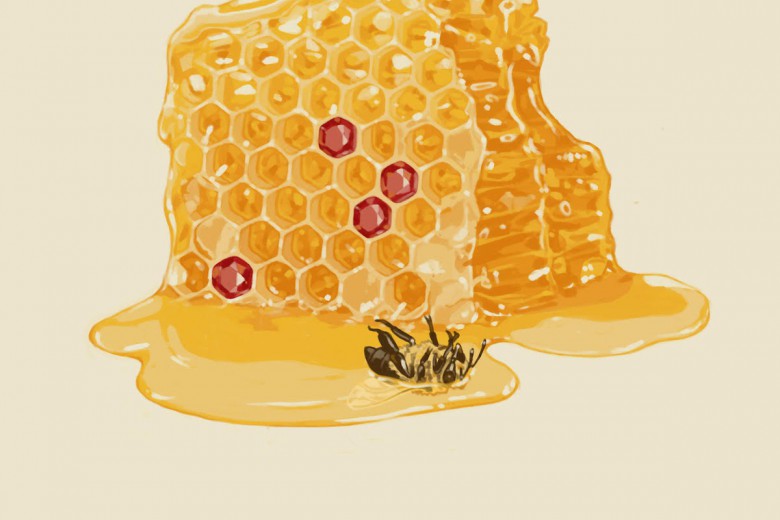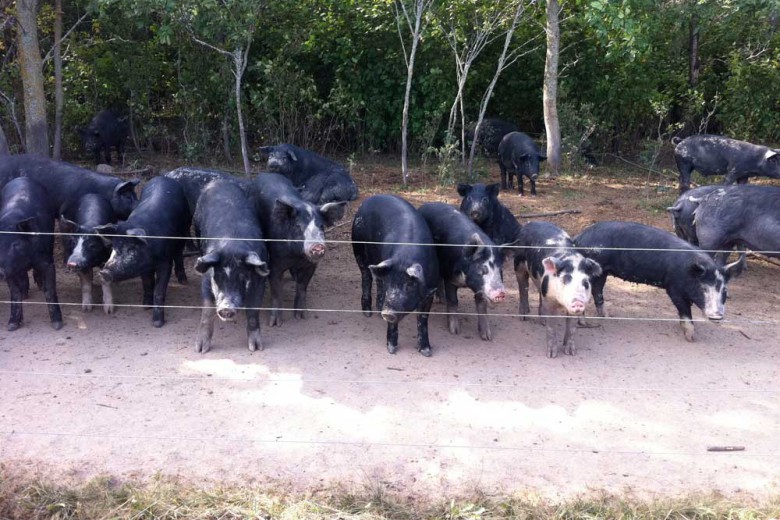
“The energy crisis – driven by over-consumption and peak oil – has provided an opportunity for powerful global partnerships between petroleum, grain, genetic engineering and automotive corporations. These new food and fuel alliances are deciding the future of the world’s agricultural landscapes. The agrofuels boom will further consolidate their hold over our food and fuel systems and allow them to determine what, how and how much will be grown, resulting in more rural poverty, environmental destruction and hunger.” — Dr. Miguel Altieri, University of California, author of Agroecology: The Science of Sustainable Agriculture
In the first half of 2008, Parliament Hill was the scene of a heated battle over the future of agriculture in Canada. The victor’s spoils: Bill C-33, an Act that would amend the Canadian Environmental Protection Act to give the federal government the power to mandate five per cent ethanol content in gasoline and two per cent biodiesel in transportation and home heating fuel. At the Senate Committee hearing on the bill, many civil society organizations argued that in the face of a worldwide food crisis, promoting an agrofuel mandate is both immoral and ineffective as a response to global warming. Nevertheless, the agrofuel lobby won the day, securing a guaranteed market and billions in subsidies, while a mere $50 million in emergency food aid was promised to shore up Canada’s declining international aid contributions.
Bill C-33 is only the most significant among many changes to government regulations and programs being proposed or implemented to restructure agriculture in support of the agrofuel sector. Other proposed regulatory changes to the Canadian grain system that would give corporations more power to control seed are being justified to allow varieties of high-starch wheat to be grown in Canada for ethanol feedstock. If the federal government succeeds in ending the farmer-run Canadian Wheat Board’s role as sole seller of western wheat and barley, the Canadian grain trade will be fully controlled by the same transnational grain corporations that are lobbying for agrofuel mandates and subsidies. The prospect of using wheat for ethanol on a large scale has also revived interest in the introduction of genetically modified wheat in Canada in some quarters.
This comprehensive restructuring, which comes at the expense of family farms and food security, is taking place despite the fact that agrofuels themselves have been largely discredited on energy conservation and environmental grounds. Mounting evidence shows that agrofuels, once touted as a renewable energy source that would reduce the climate impact of fossil fuels and rejuvenate rural economies, are actually responsible for massive global deforestation, extensive monoculture agrofuel plantations and the depopulation of rural communities as farmers are displaced and even evicted. According to a recent report by the The Organization for Economic Co-operation and Development (OECD), when soil acidification, fuel and fertilizer use, water consumption, biodiversity loss and toxicity of agricultural pesticides are taken into account, the overall negative impact of crop-based ethanol and biodiesel on the environment may well exceed that of gasoline and diesel.
The July 2008 Gallagher Review by the British government’s Renewable Fuels Agency examined in detail the direct and indirect effects of current agrofuel production and concluded by calling for a slowdown in the growth of agrofuels and the restriction of agrofuel crops to agricultural lands that would not otherwise produce food. As a result, the U.K. and the Netherlands have cut back on mandated agrofuel targets. France is also considering a withdrawal of its target and will likely not introduce any new production subsidies for ethanol in the future. Meanwhile, on this side of the Atlantic, the United States and Canada continue to implement policies to accelerate the production of agrofuels.
The international reputation of Canadian prairie agriculture was built on its ability to sell high-quality milling wheat in premium food markets. Expansion of ethanol production would abandon that hard-earned standing and shift the Western Canadian agriculture economy towards lower-margin, lower-quality and starchier wheats to serve the fuel market, while genetically engineered corn from Ontario, Quebec and the U.S. is expected to provide the primary feedstocks for ethanol in Eastern Canada.
Canola, soy and palm oil are the primary oil crops used as biodiesel feedstocks. The European food market is closed to genetically modified food, but Europe will allow the sale of agrofuels made from GMO crops. In effect, agrofuel production removes GMO restrictions from one of the world’s most attractive markets, and it’s important to bear this in mind as we examine exactly who is pushing agrofuels.
This wholehearted embrace of the agrofuel industry by the Canadian government comes largely thanks to the work of the Canadian Renewable Fuels Association (CRFA), the leading national lobby group for agrofuels. Its strategy, Climate Change Solution: Made in Canada, became the blueprint for the Harper government’s agrofuel program. When Agriculture Minister Gerry Ritz opened debate on Second Reading of Bill C-33, he said: “It is very apropos to have this bill before us today. Many of us enjoyed the camaraderie at the Canadian Renewable Fuels Association event last night in room 200, and everyone had a great time. It is a tremendous organization. This bill is the genesis of a lot of work it has done with the government to build the biofuels industry in Canada.” Just days after Bill C-33 was passed by the Senate on June 26, Stephen Harper appointed the CFRA’s former executive director, Kory Teneycke, as his Director of Communications.
The highly profitable transnational grain companies Archer Daniels Midland and Bunge are members of the CRFA. Other grain companies like Cargill and Viterra also maintain a presence within the organization through participation on the boards of other CRFA members. The shift to agrofuels allows them to tap into a whole new market – the transportation market – where, unlike the food market, demand for their products will not be constrained by poverty or the limits of the human digestive system.
Oil companies, meanwhile, have piled onto the agrofuel bandwagon in the face of increasing production costs. Increasing production challenges as mature fields go into decline and new fields get harder to come by, along with conservation measures motivated by environmental concerns, threaten to curtail growth in oil consumption. Blending fossil fuels with agrofuels looks like a good way for the industry to extend the life of our liquid-fuelled car culture while maintaining control over the production and distribution of its diversifying fuel sources. No surprise, then, that Husky Oil, Suncor, Shell and Petro-Canada are all involved in the agrofuel lobby. General Motors and Volkswagen are members of CRFA. By the end of 2009, Suncor will be the second-largest ethanol producer in Canada, while Husky is positioned to monopolize the industry on the prairies as its plants in Lloydminster and Minnedosa have the capacity to supply all of the mandated ethanol content for gasoline in Saskatchewan (7.5 per cent) and Manitoba (8.5 per cent).
But the list of agrofuel’s influential friends doesn’t end there. Agrochemical and seed companies Monsanto, Bayer, Dow and Pioneer Hi-Bred (all members of CRFA or active on members’ boards) are also well positioned to profit from the expansion of biodiesel produced from their genetically modified seed varieties. In September 2007, Monsanto, the world’s largest seed company, and GreenField, Canada’s largest ethanol producer, set up the “Gro-ethanol program” to encourage Ontario farmers to grow GMO corn seed for the ethanol market. Monsanto is also keen on “second generation” cellulosic agrofuels and has partnered with Mendel Biotechnology Inc. to develop GMO perennial grasses for biomass production.
Fertilizer companies also benefit from the shift toward agrofuel production – at the direct expense of our atmosphere. When atmospheric chemist and Nobel Prize laureate Paul Crutzen analyzed the potential global warming benefits from agro/biofuel production, he discovered that three to five per cent of the nitrogen in fertilizer was converted to nitrous oxide gas and emitted into the atmosphere – twice as much as previously thought. He concluded that agrofuels derived from corn and canola can contribute as much or more to global warming as fossil fuels owing to the impact of nitrous oxide emissions. His findings along with those of Princeton University scholar, Tim Searchinger, suggest that as farmers convert pastures and uncultivated acres to energy-intensive crops in order to serve the agrofuel market, the prairies will shift from being a net carbon sink to a net greenhouse gas emitter.
The food-versus-fuel question was front and centre when Bill C-33 was before Parliament as the global food crisis intensified in early 2008. Hansard records that NDP and Bloc Québécois Members of Parliament responded to public pressure and ended up opposing Bill C-33 while most Conservative and Liberal Senators and MPs were convinced that Canada’s participation in the agrofuel economy would have little negative impact on the world food crisis. They were also willing to believe the lobbyists’ assertions that crop-based agrofuels are just a stopgap measure until “second-generation” agrofuels produced from cellulosic feedstocks such as straw, woodchips, and cornstalks or fast-growing crops like switchgrass and hybrid poplar trees become commercially viable.
As Senator Sharon Carstairs put it, “We must find a balance between using crops to feed people and using crops to fuel automobiles. I think we all find using food crops for fuel to be somewhat offensive. I am afraid that if we do not move forward on biofuel technology from using crops, such as sugar and corn, to using derivatives from crops, such as cellulose fibre, we will never develop other types of biofuels. That is why, with some reluctance, I will support this legislation tonight.”
The enormous confidence of Carstairs and others in second-generation agrofuels is founded on the minuscule amounts of cellulosic agrofuel now in production and on an apparent faith that the complicated and expensive production methods associated with it will be overcome through yet-to-be-invented technologies. Second-generation agrofuels production in Canada currently consists of a single two million-litre-per-year experimental wheat straw plant which is owned by Iogen Corporation, with Shell, Petro-Canada and Goldman Sachs listed as partners. According to Pat Mooney of the ETC Group, an Ottawa-based non-profit international organization that critiques new technologies, “the giant stumbling block [for production of cellulosic ethanol] is that it currently requires a lot of energy to break down some biological feedstocks into sugar, and traditional chemistry has failed to provide an economical process.” Even if these obstacles are eventually overcome, cellulosic ethanol promoters willfully disregard the ecological impact of removing straw and wood biomass from the soil-building cycle, and the implications of potentially using genetically modified trees and grasses. Many MPs and Senators appear to have embraced the dubious promise of second-generation agrofuels without any critical examination at all.
Politicians can at least be sure of one thing: supporting agrofuel development in Canada will continue to require large infusions of public money. The unfolding crisis in the financial sector will likely quickly eliminate smaller agrofuel players. In the U.S., consolidation of the ethanol manufacturing sector is already well underway, with larger corporations buying out smaller, mostly farmer-investor facilities. VeraSun Energy, one of the largest ethanol producers in the U.S., recently received a $40-million aid package for interim financing while it simultaneously filed for relief under Chapter 11 of the U.S. Bankruptcy Code. Another major American player, Pacific Ethanol, saw its share price plummet from a high of $42 to less than a dollar in the fall of 2008. Depending on how Canadian governments deal with the credit collapse, we can either expect to see continued subsidies and consolidation of the sector here, or a shift towards importing ethanol and biodiesel from countries where governments do finance or subsidize the corporations. The industry simply would not survive without massive public support. Either way, there are very dim prospects of ever realizing the purported economic benefit to Canadian farmers and rural communities of the Canadian agrofuel mandate – a key selling point of Bill C-33.
The USDA Foreign Agriculture Service states that Canada’s ability to compete in grain-based ethanol production with the U.S. or with low-cost production countries (such as Brazil or Argentina) without government subsidies and market intervention is limited. This sentiment is echoed by the business-oriented C.D. Howe Institute, which concluded in July 2008 that offering large subsidies to encourage ethanol production distorts agricultural markets and food prices in Canada and elsewhere. In the end, the institute called on the Canadian government to place a moratorium on any further support for grain-based agrofuel initiatives.
When the idea of agrofuels was first introduced, many Canadians embraced the concept, swept up by its promise of preserving their car-dependent way of life while the twin shadows of peak oil and climate change loomed. But we now see it was a promise that cannot be kept. Evidence is accumulating that expanding agrofuel production will impoverish both the environment and people around the world while allowing large corporations to consolidate their control over food, land and energy.
What is really at stake is whether Canada’s agricultural land will primarily produce food to serve people and communities or fuel for cars and machines. If Canadians were to soundly reject the fiction that it is possible to sustain our transportation system as it is by simply switching from fossil to agrofuels, the Canadian government could then redirect the billions of dollars that have been allocated to setting up the agrofuel infrastructure. Resources could instead be invested in measures such as urban transit, city planning to make cities more pedestrian- and bike-friendly, rural high-speed Internet, convenient inter-community rail passenger service, local food production, reduced highway speeds, fuel efficiency standards for vehicles and transition strategies for transportation intensive industries. The result would be practical community economic development with real climate change benefits, instead of an expensive, wasteful make-work scheme that will drive more farmers off the land and further impoverish rural communities.






